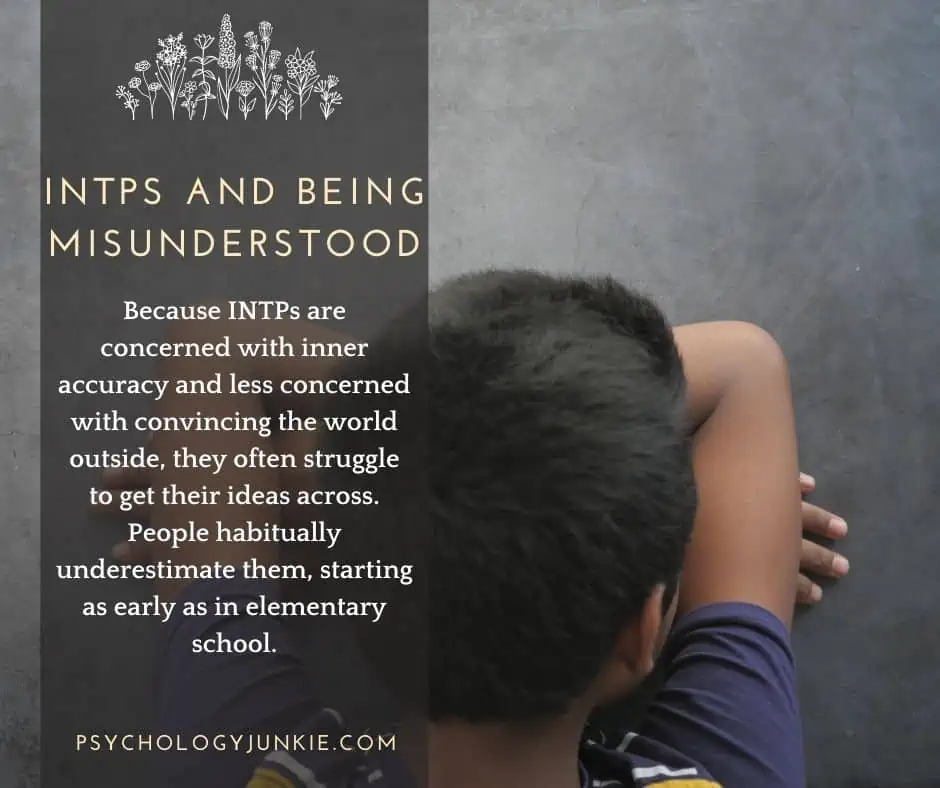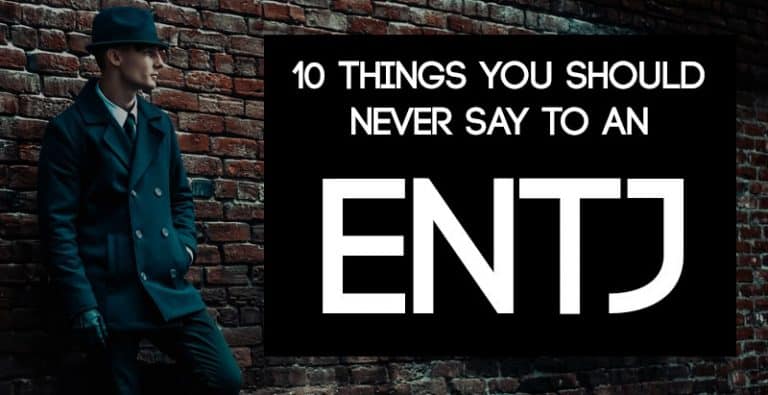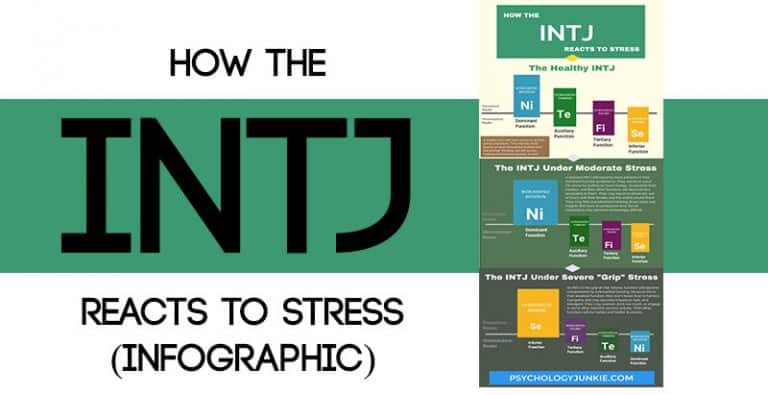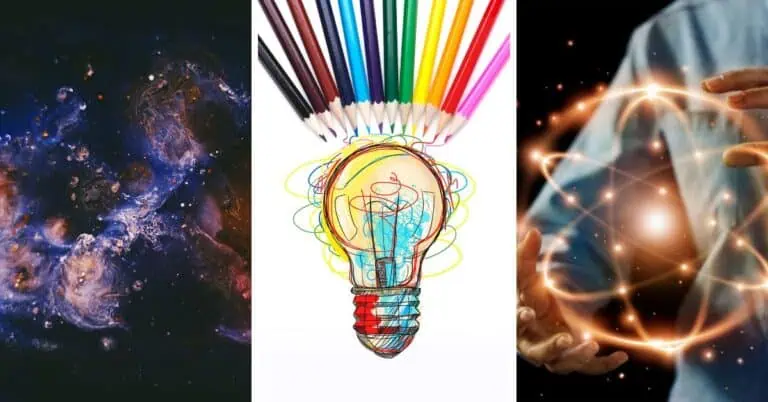The Dark Side of the INTP Personality Type
The INTP dark side (queue Twilight Zone music). What is it? How can you recognize it?
Everyone has a dark side; insecurities they keep hidden, weaknesses they wish they didn’t have, or melancholy feelings that plague them. One question I’m often asked as an MBTI® practitioner is “What is the dark side of my personality type?”

I’ve written about the unhealthy INTP before, but today’s post is going to explore more of the secret vulnerabilities, struggles, and insecurities of this type and how those can manifest in dark or frustrating ways.
What is the INTP Personality Type?
If you’re new to type and happened to stumble onto this article, you might be wondering what INTP even means! The INTP is one of 16 Myers-Briggs® personality types. The INTP code tells us how this personality type likes to take in information and make decisions.
The acronym INTP stands for Introverted, Intuitive, Thinking, and Perceiving. In general terms, this means that people with this type are:
I – Focused on the internal world over the external world (Introversion)
N – Focused on abstract concepts rather than literal details (Intuition)
T – Make decisions by prioritizing logic (Thinking)
P – Prefer a flexible, open-ended approach to life (Perceiving)
INTPs are often called “Prodigies” or “Logicians”. They analyze and get behind the scenes of problems, trying to understand the principles of how the world works. Imagination is highly valued by this type, as well as originality. This type isn’t afraid to be unconventional or reflect in-depth on any particular problem. They’d rather be accurate than popular, truthful rather than charming. Famous INTPs include Albert Einstein, Charles Darwin, Marie Curie, and John Locke.
What are the Insecurities of the INTP?

Being Misunderstood
INTPs are more concerned with understanding than application. For this type, having a thorough knowledge of how something works is more important than using that information to achieve an external goal. INTPs amass information and analyze it to the point of overthinking.
The INTP’s talent for in-depth analysis can be impressive, but when it comes to expressing their ideas, INTPs can struggle to get the words out in the way they’d like. In their mind, the logic of their ideas is elegant and beautifully connected. But when they try to verbalize their ideas to others, they tend to feel irritated by how little people seem to understand. This can lead to feelings of frustration and loneliness over time. Some INTPs are left with the feeling that others are too “dim” to understand the complexity of their thoughts.
Swiss psychoanalyst Carl Jung said of this type, “When he does put his ideas into the world, he never introduces them like a mother solicitous for her children, but simply dumps them there and gets extremely annoyed if they fail to thrive on their own account.” (Psychological Types, 384)
Because INTPs are concerned with inner accuracy and less concerned with convincing the world outside, they often struggle to get their ideas across. People habitually underestimate them, starting as early as in elementary school. The struggle to express one’s self is often a lifelong ordeal for the INTP. Some INTPs befriend fellow NT or STP personality types who can draw their ideas out in a way that feels natural. When this happens, they are often able develop more confidence and poise with self-expression.
Internal vs External Excellence
Because INTPs care more about reaching an inner standard of understanding than achieving an external “reward,” they are typically less focused on grades or benchmarks and more focused on depth. Simultaneously, if they see a subject as irrelevant to them, they are often distracted by theories and ideas that are of more import to them personally. This often leads them to struggle with being understood in school. While many perform well on IQ tests they care little about following a prescribed formula or doing anything repetitive.
Typologist Paul D. Tieger states, “For most INTPs, their internal standards are much more interesting and important to them than any external standard imposed by others….Because internal standards matter so much more to INTPs than external ones, tests and report cards hold little meaning and rarely serve to motivate.” (Nurture by Nature, 155)
Because the world cares so much about external performance, INTPs can feel constantly belittled and devalued. This lead to frustration with authorities or anyone who has a tendency to “pull rank.”
Albert Einstein, an INTP, famously said: “To punish me for my contempt for authority, Fate made me an authority myself.”
Many INTPs will relate to Einstein’s distaste for authority. Rather than being in charge, INTPs often want to consult a variety of great minds and reach new depths of understanding. They care less about leading others and more about discovering new ideas.
“I find that [pursuing truth] is more important than trying to control people.” – Larry Page, Founder of Google
When INTPs put out their ideas in a convincing way, they can become trailblazers and catalysts who change everything. Larry Page and Sergey Brin, both INTPs, founded Google. Jimmy Wales, an INTP, formed Wikipedia. Abraham Lincoln, an INTP, changed the direction of U.S history.
INTPs have a lot to offer when they are able to express their inner vision in a way that others can understand. But because they often don’t command others’ attention with the same outspoken directness as certain other types, they can feel like they’re constantly pushed to the side. Because much of their ingenuity is internalized, people often don’t realize the originality and depth of their thoughts.
Feeling Unappreciated
As dominant Thinking types, INTPs value clarity of logic. But INTPs also feel. Their feeling function is called Extraverted Feeling and in many ways it appears as the opposite of Introverted Thinking, the INTP’s dominant function. This feeling side of the INTP revolves around having positive expression and rapport with others. Their feeling side craves warmth, harmony, and connection. However, INTPs often feel that they are not getting these things. They can be plagued by waves of intense self-consciousness and shyness, and many eschew social opportunities for fear of saying (or doing) the wrong thing or being misperceived.
Roger R. Pearman, EdD, says of this phenomenon, “In a compensatory mode (as with INTPs), Extraverted Feeling is driven so hard by the feeling of being disliked that it overwhelms all in the wave of its expression. This negative emotion has a needy quality that is so strong that individuals who see it coming get out of the way. This moving away by others inadvertently verifies the sense of being unappreciated. The emotions are well out of control for those who prefer Introverted Thinking. This causes anxiety and perhaps even some bitterness at the power of these emotions.” (I’m Not Crazy I’m Just Not You, 69)
This isn’t to say that INTPs are constantly emotionally needy and overwhelming. In fact, most are so afraid of their inner sensitivity being seen that they bottle up their feelings. During states of charged stress or moments of impulsivity, this Feeling side can erupt and INTPs may express intense emotions that surprise others with their magnitude. Unfortunately, this often leads to shame rather than understanding for the INTP. As a result, they keep trying to push the lid down on what they feel for fear of being misunderstood or mocked. The continued repression of their need for warmth and connection can lead to an inner resentment, insecurity, or self-critical nature. For some INTPs, they simply give up and stop trying to gain warmth from anyone and develop a more hostile, arrogant attitude, taking on the belief that nobody will understand them so they might as well not even try. Yet as much as INTPs may deny it, they deeply crave a sense of connection with others. They want to feel appreciated, heard, and considered.
Some INTPs form shallow or empty relationships in order to satisfy their desire for connection. While they are introverts, they are still humans and like all humans they have interpersonal needs. Connecting with others one-on-one can lower feelings of depression, loneliness, and anxiety as well as help individuals to refine their thoughts and ideas. While shallow relationships are temporarily appeasing, they don’t provide any deep or long-term satisfaction. Some INTPs keep their true selves hidden in order to maintain a social connection, assuming that their intellectual thoughts won’t be accepted or liked by others. This can lead to long-term feelings of emptiness, dissatisfaction, or grief.
Ways to Heal from the Dark Side:
INTPs have the potential to be catalysts of great change and visionaries of the future. But first, they must learn to accept themselves and their unique gifts. The best way to do this is to recognize their own internal genius, appreciate their complexity and value, practice open expression with others, and feel comfortable within their own skin.
Once INTPs break through these barriers to self-acceptance, they can begin to express their complex ideas more openly and confidently. They can learn to embrace their need for connection with others and find ways to get their emotional needs met in healthy ways. When INTPs are able to do this, they become a force to be reckoned with – original, insightful, and passionate people who can make a lasting impact on the world.
Some Steps to Take to Grow:
- As an INTP, it’s natural for you to sequester yourself away and pursue knowledge and understanding. This is valuable. Make sure you’re getting enough time for this in your daily life and your schedule isn’t jam-packed with external obligations and demands.
- Remember that even though you’re an introvert, you do have an extroverted side as well. Ample alone time is important, but if you become too isolated and reclusive you will struggle to bring your ideas to fruition and form meaningful connections with people and the world around you.
- Take time to brainstorm, create, and innovate with others. Find communities where your critical thinking and imagination are valued. You could join a book club, a debate team, or take a class on a subject that interests you. There are hundreds of online communities that may hold similar interests to your own. Practice sharing your ideas and theories with others and engaging in the external world. The more you do this, the easier it will become to put yourself out there, grow in your discoveries, and gain valuable relationships.
- Try new things. As an NP personality type, exposing yourself to new ideas, locations, and people inspires growth. The challenge and novelty of being in a new situation that you aren’t used to can help break down the self-limiting beliefs and fear that keep you from expressing yourself openly. Do something new every day, even if it’s uncomfortable. This could be as simple as going to a new coffee shop or as complex as talking to someone at work you’ve never talked to before.
- Read biographies of other inspiring INTPs. You may find that their struggles provide you with a feeling of comfort and solidarity. You’ll also be inspired by how they pushed through hardships to make positive changes in the world. You can see a list of famous rumored INTPs on IDRLabs.com
- Express your emotions through writing poetry, journaling, or even singing (if you feel comfortable doing so). This will help you to understand your emotions and give you greater self-awareness. Read your journal or poetry back to yourself; hearing it in your own voice can help you to process it more accurately.
- Find a friend or family member that you trust to share your feelings with. Ask for their thoughts and accept their affirmation or empathy. If they do have criticisms to share, don’t let that dissuade you from reaching out. Make sure that the person you share your feelings with is someone with good intentions who really wants the best for you.
- If possible, find other NT personality types to engage with. These types can help you to break out of your shell and will likely enjoy hearing your ideas and theories, even if they don’t always agree. They may provide an outlet you need for intellectual stimulation and challenge.
What Are Your Thoughts on the INTP Dark Side?
Do you feel like you’re dealing with an INTP’s dark side? These types have a unique set of gifts and challenges, but with the right strategies they can become powerful contributors to society. By taking time for themselves, engaging in meaningful relationships, and trying new things, INTPs can unlock their potential. I for one am grateful for the INTPs in my life – they’ve helped me to see things from a different perspective and have made the world a more interesting place.
Do you have any perspectives or thoughts you’d like to share? Let us and other readers know in the comments!
Other Articles You Might Enjoy:
24 Signs That You’re an INTP, the Prodigy Personality Type
References:
Jung, C. G., (1990), Psychological Types (9th Edition), Princeton-Bollingen.
Pearman, Roger. R., (2010), I’m Not Crazy I’m Just Not You (2nd Edition), Nicholas Brealey Publishing
Tieger, Paul D. & Barbara Barron (1997), Nurture by Nature: Understand Your Child’s Personality Type – And Become a Better Parent, Little, Brown and Company









Story of my life!!
I also have ADHD which amplifies some parts you mention in the article.
I’m so fast at some stuff, I can find creative solutions where people with more experience wouldn’t think of it, and I’m really fast at understanding logical systems, but since I struggle with repetitive stuff or Te stuff, I think understanding an existing system that doesn’t make sense, so understanding it the way it is, is kinda more Te than Ti? but maybe I’m wrong about that, since I struggle with these stuff, indeed my colleagues probably don’t see me as very smart… and I’m inside me, I can see how smart I am, and I know what I’m good at, so yes it’s frustrating. And even when I say what I’m good at, I’m not taken seriously. And I’m not good at dealing with that frustration, especially with the ADHD impulsivity.
I do have a few NT friends, and an ISTP friend. I have a few INTJ friends but somehow no INTP.
Thank you for this article, it’s very interesting! I believe you have an INTP daughter, she’s lucky to have a mom who can understand her so well!
👍
This article describes me very well! Especially the parts about contempt for authority. I instantly dislike authority figures, but I never understood why. Thankfully I am an extremely quiet person so that saved me from being kicked out of college.
I don’t really see other people as dim, because other people see me as dim😅. Depression and self-esteem issues do contribute to that. It’s hard to concentrate in class because I’m sleepy, i don’t really get a topic at the first try, it’s even worse if the professor notices it. I’m not disrespecting you, I’m trying my best not to fall asleep, balancing the imaginary world/s in my head and also trying to listen to the lecture🥺.
If anyone knows a good method to be more focused in studying, please tell me😊
My advice for INTPs: maintain your social circle! Friendships dwindle as you grow older, so reach out to your friends once in a while. I’m a depressed, socially awkward loner, so I prefer to text people. Just send them weird memes or things you find interesting. Internet friends are friends too <3
Personally as an INTP, I would say that I don’t dislike authority per se, we have to have order in society and I appreciate the wisdom of older ones. What I really dislike are stupid laws, and I really dislike the jerks who enforce them! 😆
As for studying, it can be hard to study subjects that don’t interest me, and I can’t stop when something does interest me.
I prefer reading a digital article vs paper books. If there’s a lot of information that needs to be taken in, then I try to find a recording of the info to listen to, perhaps even a few times.
I also like to play FreeCell, or Spider (on expert mode) just to wind down, I also play it while listening to seminars etc. The game helps distract me from thinking about other things while I’m listening to the information. I’ve played it over 10,000 times and I’ve never lost a game of FreeCell on “expert”, or Spider on “hard”, so I can play it without even thinking about it. I also think that part of it is that it keeps my hands from being idle.
“I instantly dislike authority figures, but I never understood why.”
I made the realization for myself a couple of years ago. To be an authority is to be considered correct simply on the basis of being an authority. This circular reasoning does not stand up to our rigorous logical standards. An argument should be evaluated on its own merits, not because it was posited by an “authority.”
It’s the same as being incomprehensibly frustrated when your parent would say “because I said so.” This is not logically valid, and is thus unacceptable.
This realization helped me grow as a person, I hope it helps you too. 🙂
This is 100% true. I would characterize myself as a rather average and typical INTP 5, though even if I have my good healthy days, I can still be a bit too isolated, private, and emotionally stoic. Though it might be blunt to say, and I don’t really know how to word this, but it feels like INTPs across the internet seem to take this criticism of our dark side better than other types, especially feelers. I’m not saying feelers never know how to take criticism, a lot of mature ones do, (or that thinkers are never like this) but overall, when you see comment sections of the dark sides of feelers across the internet, there’s usually comments akin to like “You’re just personally angrier at a (feeler type) in your life,” or “You’re obviously biased in seeing all (feeler type)s as evil,” even when the person says they love this type, and have many people they love close to them in life that are like this.
Though thinking back to this, I often find myself wanting to be more openly warm, yet being unable to know how to do that. To other types, it seems like common sense. It’s not something that needs to be explained. To me, I have no idea how to do it sometimes. You can listen to typical advice on the internet, but there’s less of those rules on the circumstances of what’s good in what context, or what’s bad in other contexts. Because not every good piece of advice works all the time, and not every bad piece of advice works all the time. I know basically it means advice in relationships involve knowing the individual person well, but I don’t know why people would expect that I can read everything about what they want emotionally the moment I met them. I guess all I can do is try to talk to more people, gain more social experience, and just figure out the details along the way.
It’s easier to provide feedback in direct communication to similar types, but like in the example earlier, people will get angry at you no matter how much you try to be polite in giving feedback. They will possibly read it as sarcastic, even when they ask you for your honest words, and they’re horrified you agreed with them when they admit they have a weakness in a certain area. I think I was supposed to comfort them, but it feels disingenuous to say so.
Maybe with time and experience, I’ll get it. At least something closer to what 40+ INTPs are like. I don’t think I’ll ever get to ENFJ/ESFJ levels with people, but middle aged or elderly INTPs who know what the hell they’re doing socially. . . I’d like to get whatever inner peace they seem to have one day.
You make it sound like your dieing or giving up on your personality😂
THIS IS TOO ACCURATE 😭
The narrative of the Feeling Unappreciated section sounds similar to descriptions of Borderline Personality Disorder. Do you see an overlap or relationship between the two psychological concepts?
This is exactly me, but I’m an INTP/INFP blend with a perfectly healthy respect for emotions. Journaling my feelings, why, I do that all the time! My trouble is that I’ve got a poor sense of what other people do or don’t know, leading to either explaining obnoxiously simple things, or assuming people have made a connection that’s only “obvious” to me.
And we always eat up conspiracy theories and throw our logic in there with it
Susan, those of us who are INTPs often get accused of overthinking. I’m going to call you out on this. The term ‘overthinking’ is, from my POV, a mushy value judgement that is highly dependent on the mostly obscure personal values of the person using the term. Kindly define, *accurately* and precisely, your use of the term, including relevant scope and context. If you can’t do that, I will accuse you of *underthinking* (and sloppy work) lol…
Don’t take my parenthetical comment too literally. I find most of your writing to be well thought out, insightful, and interesting.
Very nice article. I don’t think I immediately dislike authority figures. Perhaps skeptical is more accurate for me.
Your insights into the INTP personality are so true, Susan!
I had a best friend for over a decade who is an INTP. He was normally very reasonable and logical which I greatly appreciated (I’m an INTJ), so different from the “normal” gossipy, trivial “small talk” types.
About a month ago we had an intellectual disagreement over the currently fraught and difficult issue of the Covid vaccines; their effectiveness, their safety, the integrity of Big Pharma, the extent that Big Pharma had infiltrated their government regulatory, oversight agencies, etc.
At one point my friend, who is normally so rational and cool-headed, engaged in what I felt was a petty, ad hominum attack on some doctors questioning the worth of the Covid vaccines. I was so offended by his petty, emotional attack on people I considered to be well-informed authorities in their field that I broke off all communication with my former friend. We are no longer on speaking terms. That’s the way it goes, sometimes.
Oh my god this is so helpful. I’m was bottled up and just wanted to exploded and die all the time, but i had an ENTP friend who helped me express myself, so now I’m an artist and have good friends.
Hit the nail on the head pretty well! As an INTP woman who cofounded a business with an ESFJ, i was quite happy for several years (but got burned out with details and lack of childcare…). After stepping back for a few months from the daily operations, i found myself not just replaced but demoted and not wanted back as a partner. I’m too hard to work with and not patient enough to work with the team. And nobody even knew what I was doing anyway. I feel so bad about myself because I’ve been so misunderstood so many times and when I try to explain, I shoot myself in the foot everytime I open my mouth. Nobody wants facts. Or my inferior Fe, they want dominant Fe. No Ti. And I just don’t know how to speak that language.